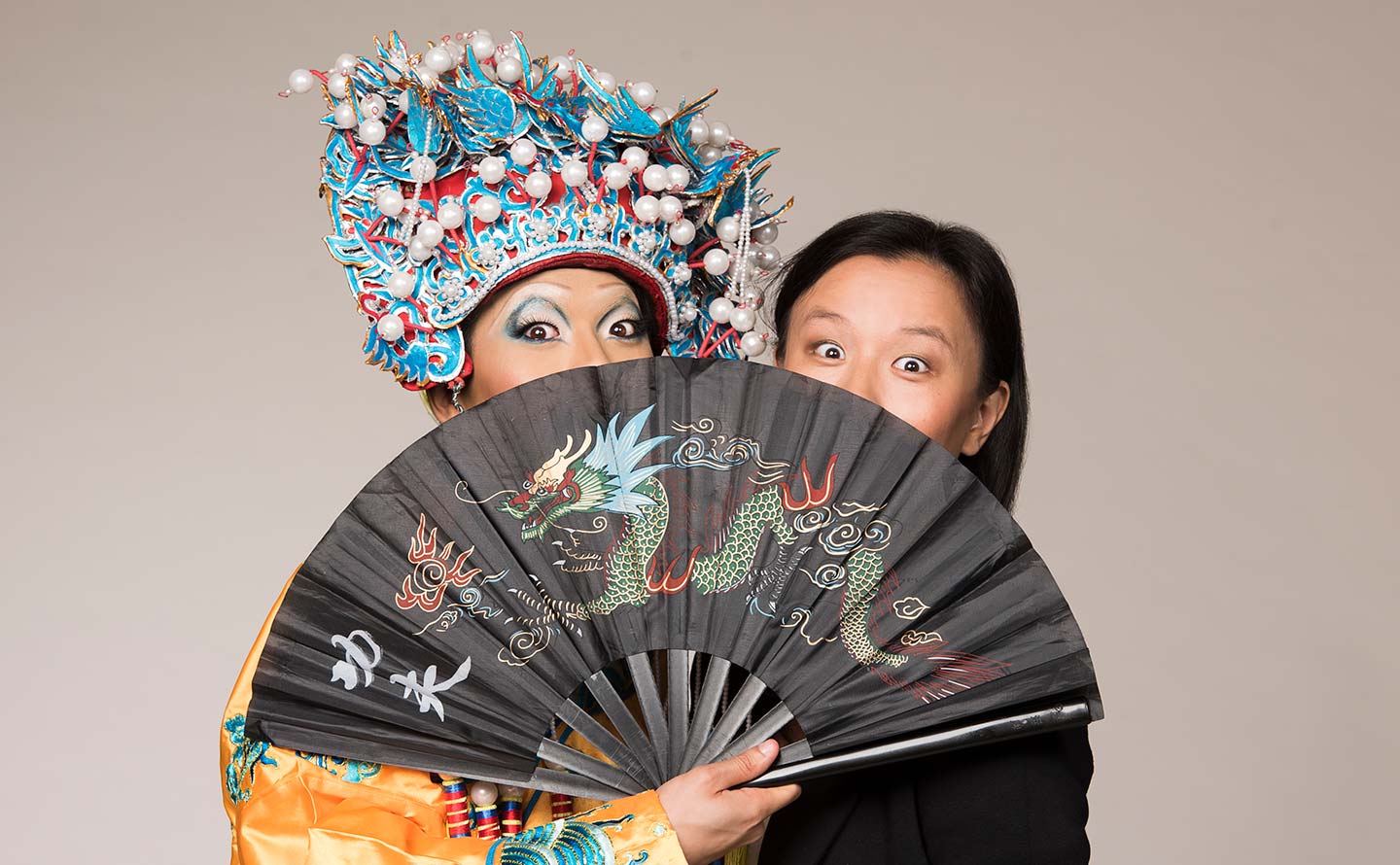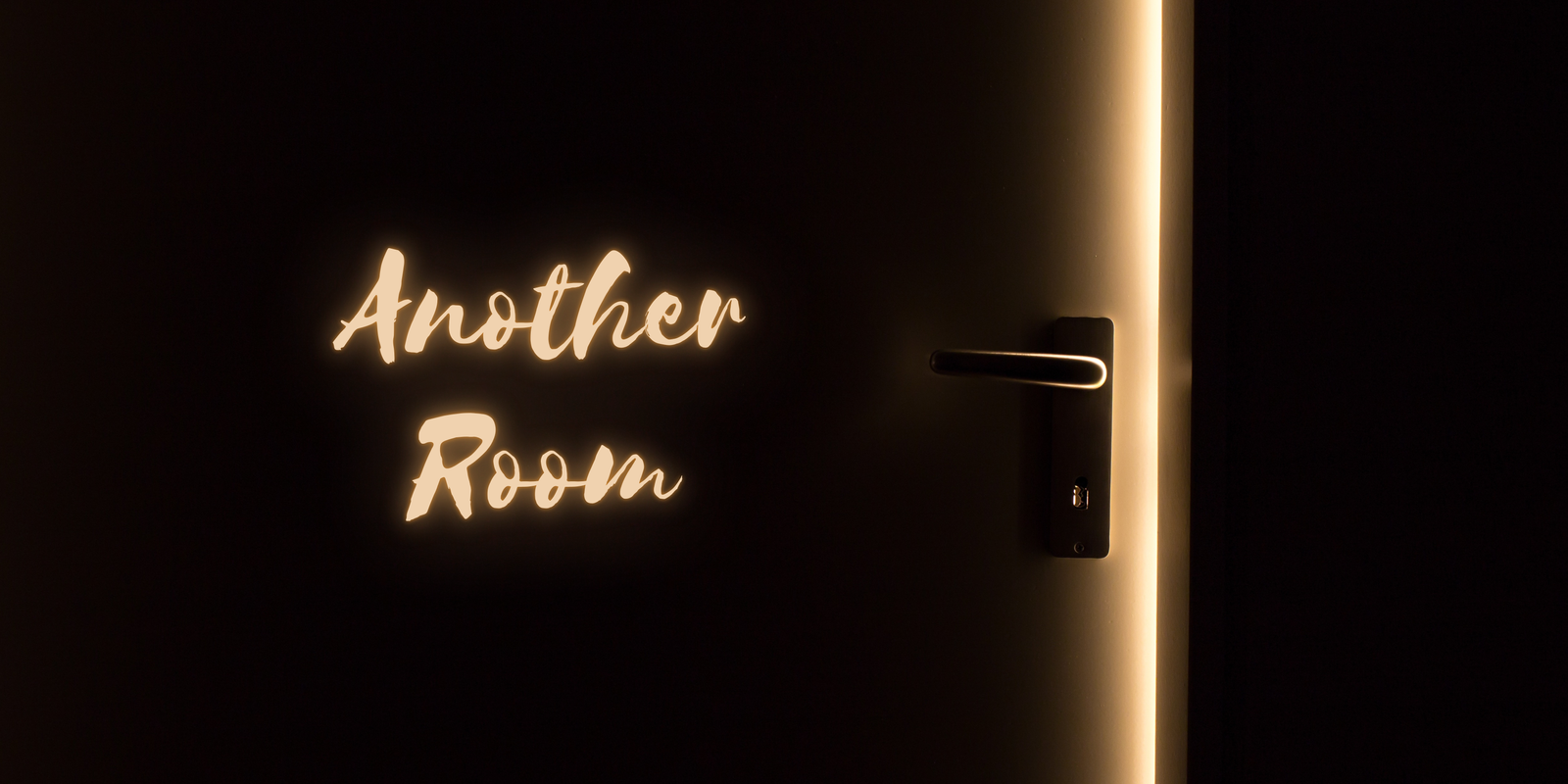The moment I saw the promotional posters for King of the Yees I knew this was going to be a fun play. And it absolutely was. I honestly do not know exactly what I was expecting out of this play, but this piece totally ignored any expectations I might have had, went on it’s own little side quest, stopped for a dance off, and then blew those expectations away. It was so weird but so good and just when I thought I knew how the rest of the play was going to work, it changed again. This was definitely one wild ride. Essentially, this is a play about a play. It begins with two actors on stage who play Larry Yee and his playwright daughter Lauren Yee. It was a “normal” play for maybe only a few minutes. Then the actors are interrupted by… Larry Yee and Lauren Yee. Lauren Yee is the playwright of the scene we have just watched, and she is watching a rehearsal of her latest play while her father tags along; the play features two actors who are playing Larry Yee and Lauren Yee who are now talking to the “real” Larry Yee and Lauren Yee. And this play about a play is written by the actual real person Lauren Yee. So: Lauren Yee wrote a play about her writing a play about her writing a play. Yeah, it is as crazy as it sounds.
Essentially, this is a play about a play. It begins with two actors on stage who play Larry Yee and his playwright daughter Lauren Yee. It was a “normal” play for maybe only a few minutes. Then the actors are interrupted by… Larry Yee and Lauren Yee. Lauren Yee is the playwright of the scene we have just watched, and she is watching a rehearsal of her latest play while her father tags along; the play features two actors who are playing Larry Yee and Lauren Yee who are now talking to the “real” Larry Yee and Lauren Yee. And this play about a play is written by the actual real person Lauren Yee. So: Lauren Yee wrote a play about her writing a play about her writing a play. Yeah, it is as crazy as it sounds.
It gets even weirder. Practically every single scene in this play is set up in a totally different style. There’s the “normal” play, the play within a play, a community forum to discuss important social issues, existential and comedic conversations about ones identity as an Asian American in Chinatown, a mystical quest, a journey to the afterlife, a dance off… Thanks to the fantastic work of director Sherry J. Yoon, all of this came together without a hitch. It’s a totally mind bending adventure with unexpected twists and turns and it is absolutely hilarious.
Practically every single scene in this play is set up in a totally different style. There’s the “normal” play, the play within a play, a community forum to discuss important social issues, existential and comedic conversations about ones identity as an Asian American in Chinatown, a mystical quest, a journey to the afterlife, a dance off… Thanks to the fantastic work of director Sherry J. Yoon, all of this came together without a hitch. It’s a totally mind bending adventure with unexpected twists and turns and it is absolutely hilarious.
As Lauren Yee (Andrea Yu) says to her father (Jovanni Sy) , she wanted this play to be a two-hander, meaning that only two actors are used to play Lauren and Larry. He is dumbfounded by this idea because he thinks it will be impossible to tell a story about life in Chinatown with only two people. In a way he is right. But Lauren kind of also gets her way too. There are really only two actual characters in the play: Lauren and Larry. So in that sense, the play is a two-hander because the play revolves around them and they are the only real characters – everyone else is just an extra. The unnamed actors who play the fake Lauren and Larry even have an existential moment where they begin to wonder if they even exist at all. For the purposes of the story, only the real Lauren and Larry truly exist. However, Larry gets his way because the “extras” in this story are three actors (Raugi Yu, Donna Soares, and Milton Lim) who are constantly changing roles on stage to fill the position of the different characters in the story: actors, gangsters, citizens of Chinatown, stereotypes, and cultural icons.
Without a doubt, the top three of these characters are the face changer, the model ancestor, and the lion dancer. The names of these three were thrown around so much in Act 1 that it was definitely an exciting moment when they finally appeared in Act 2. The face changer had a phenomenally intricate costume and although he only changed his face a few times, it was still very well done. The model ancestor has been pictured on the promotional material for this play and I was so excited to see how this character would fit in to the story. The actor in this role portrayed the model ancestor as a drag queen so this performance was hilarious and over the top. Plus, the fact that he was rigged up to float and do flips during the scene definitely made this one of the best moments of the entire play. The lion dancer was my favourite though, and although this mysterious figure appeared briefly in Act 1, they truly stole the show in Act 2. Whenever the lion dancer appeared on stage, it danced in a more traditional manner… Until Lauren challenged it to a dance off and the theatre turned into a dance hall as “Fantastic Baby” by Big Bang blasted over the speakers.
At the heart of this play, the story is one of cultural identity. This is showcased both comically – when two actors give each other lessons in how to speak with Chinese and Korean accents – and seriously. The more serious scenes revolve primarily around the relationship between father and daughter. Lauren is drifting away from her cultural heritage since she knows little of Chinatown, speaks only English, and has taken her Jewish husband’s last name. She is barely a Yee anymore. Larry, by contrast, clings to his cultural identity and takes pride in the fact that he is a Yee; throughout the play he attempts to encourage Lauren to take pride in her identity as a Yee as well. Another really interesting way of drawing attention to this is the fact that tone in language becomes an important element of the play. There are frequent reminders that Chinese is a tonal language and that there are different ways of saying the same thing so that it carries different meaning (i.e. speaking for someone vs. speaking for someone). Throughout the play, Lauren frequently struggles to interpret multiple meanings from words, just as she struggles to interpret her own personal identity. In the end she succeeds and all of the doors on the grandiose set, which had previously been closed, all open for her as she accepts her identity as a Yee.
So yes, this play is crazy, but it’s both fun and thought provoking. This one is definitely a must-see at the NAC.



